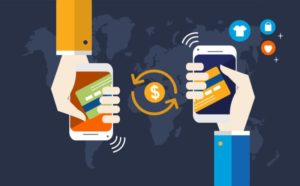Facebook is enabling person-to-person payments for WhatsApp users in Brazil. The new feature is being delivered in collaboration with Visa, which is outfitting Facebook with the technology needed to secure individual transactions. That includes the Visa Direct real-time push payments platform, as well as the company’s new Visa Cloud Tokenization solution.

Visa’s technology will allow Brazilian WhatsApp users to purchase goods from small businesses, or to send and receive money from individual WhatsApp users in their social circle. WhatsApp members will need to add a Visa card to their account to take advantage of the service, while small businesses will need to set up a WhatsApp Business account before accepting payments.
“Being able to move money in real-time is increasingly critical for consumers and businesses,” said Visa Chief Product Officer Jack Forestell. “We strive to make payments easier for our partners by harnessing our products to help global technology platforms like WhatsApp enable compelling payment experiences.”
Forestell noted that digital payments have become an even greater priority since the onset of COVID-19. The global transaction volume on the Visa Direct platform has gone up 70 percent during the pandemic.
Visa’s Cloud Token solution, meanwhile, is a device-agnostic service that converts data to tokens to protect the sensitive information needed to complete a transaction. The tokens are integrated with a person’s bank, and will allow users to leverage any biometric authentication features they have on their devices for additional security. The technology is making its debut with WhatsApp Brazil.
“Apps are enabling payments to be made from any device that has an internet connection,” added Forestell. “Visa will continue to apply our security and fraud-fighting features to digital payment technology, as we scale this new technology around the world.”
Mastercard recently reported that e-commerce spending is up $53 billion in the past two months. WhatsApp introduced support for Face and Touch ID in February of 2019, and followed that up with support for fingerprint authentication on Android phones in November.

Follow Us